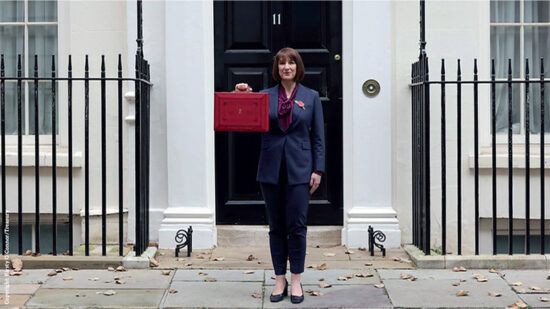More than half of small and medium-sized enterprises (SMEs) want to reduce their climate impact but are concerned about the increased costs involved and the economic conditions of their businesses, research carried out by UK Finance found.
In the report Unlocking the SME Net Zero Transition, UK Finance highlighted SMEs make up the bulk of the UK economy and are responsible for between 43-53% of UK greenhouse gas emissions.
It found 57% want to reduce their climate impacts but 48% of business owners are worried about the impact of increased costs and economic conditions on their businesses. Further, appetite among SMEs to take major carbon-reducing actions dropped between 2021 and 2023, to 19% from 27%.
Although the transition can offer opportunities to SMEs, which tend to be closer to eco-conscious consumers and employees, they are not prepared for regulations and policies coming in to place that can change the way they are expected to do business – for example, the phase-out of petrol and diesel cars, and the emergence of lower-polluting and decline of higher-polluting sectors, will all have an impact.
The report said SMEs do not have “the time, capacity, or finance to address their environmental impacts and risks fully”, and they find it harder to identify and prioritise more complex requirements.
It added: “Many are also concerned about the timescales for return on investment (ROI) and how this aligns with their broader business strategy and profitability. Even those that have stronger capabilities are often hampered by confusing or conflicting information and policy.”
In the report, UK Finance said the SMEs themselves have suggestions on how they can be helped with these challenges including helping leaders understand what needs to be in with “digestible information”, but also fund it “with the right combination of public and private finance so it doesn’t endanger our viability”. They also called for a “clear, consistent policy framework” to be put in place.
See also: Supportive policy and regulation could boost UK sustainable finance by £100bn AUM
As a result, UK Finance issued a set of recommendations for policymakers, financial services companies and other actors in the SME value-chain to support SMEs in aligning with the net-zero transition.
These included calling on government to relaunch the UK Business Climate Hub, and issue ‘Help to Green’ vouchers of £5,000 for SME action. It also suggested the government establishes a Taskforce to plug the gaps in SME-facing sustainability policy, and help strengthen SME understanding of what is required.
In terms of larger businesses, UK Finance suggested they provide training, resources and support to help SME suppliers improve their environmental practices, and SMEs themselves were recommended to seek advice and support from their financial service providers and/or larger customers, and use the UK Business Climate Hub, to map out sustainability plans.
Banks were asked to produce guides to explain where SME spending on sustainable action makes financial sense and improve business understanding through mentoring and business networks to share good practice.
UK Finance said, as part of the recommendations, it will support banks and other actors to better support SME action, “by facilitating knowledge-sharing and data-gathering”.
David Postings, chief executive of UK Finance, commented in the report it was time to reset the support that government and the financial services sector offer to SMEs to decarbonise.
“If we do not do this, many businesses will be left behind, and we will fail to deliver the just transition that is so important to maintaining public commitment to net zero. We can and must offer a better future for the businesses at the core of the UK economy.
“SMEs are a critical part of the transition to net zero. Alongside running their businesses in challenging economic conditions, they told us they often feel unable to prioritise action to decarbonise and are overwhelmed or confused by mounting expectations.
“Ultimately SMEs lack the time, capacity and access to the right information and funding to help them transition. That’s why we have laid out a series of practical recommendations for government, businesses and financial services to support SMEs through a just transition to a more sustainable economy”.
Dame Teresa Graham, chair of the UK Finance SME Advisory Group, added: “The transition to net zero is one of the greatest challenges we all face. SME business owners are short of time and understandably find it hard to know what needs to be done to decarbonise and how to do it.
“The practical recommendations from UK Finance are focused on the barriers that SMEs say prevent them from taking greater sustainability action. Lots of parties have a role to play, including larger businesses who can support their suppliers in the SME community by providing training and resources. Collectively, we can all help SMEs through the transition.”
UK Finance spoke to 24 SMEs for the research in August 2023. Participants were selected from a range of sectors across the UK, with a mix of turnovers up to £25m, as well as from diverse business age and owner age-groups, with representation of some family-owned businesses.








